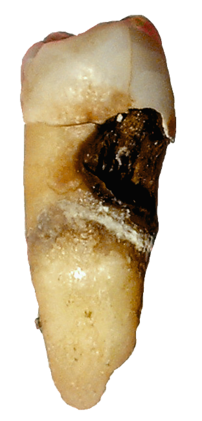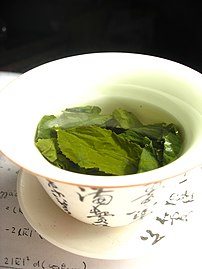[amazon_link asins=’B01HB574OQ,B01J7SCXNC,B00ISAPPLI,B001G7QGCM,B00M3AK91A,B00SGF5N1M,B01N6IUKHH,B01M289ENE,B000OWLNBY’ template=’ProductCarousel’ store=’finmeacur-20′ marketplace=’US’ link_id=’aa305525-9315-11e7-b062-cba3fe1eb70f’]
Most dentists take note of the state of your tongue (and gums) when they’re looking inside your mouth, and are well aware that a carpet of yellow fur on your tongue indicates you overdid things last night.
………………...CLICK & SEE THE PICTURES
However, here at the John Roberts Holistic Dentistry Practice, in West Yorkshire, they draw not just on common sense, but on the specific teaching of traditional Chinese medicine.
Just as Western opticians have now started inspecting the eyes for signs of diabetes, Chinese physicians have for centuries been using a tongue ‘map’ to chart what’s happening in the rest of the body.
‘
‘Each area of the tongue corresponds to a different internal organ; which means, basically, the tongue is the window through which one can look into the body,’ Dr Roberts explains.
Dr Roberts is looking for, then, is any swelling, discolouration or cracking that will give him a clue about the wider me. He’s gazing at the rifts and chasms of my tongue as closely as if this were Crime Scene Investigation.
‘This line down the centre of your tongue, not bad at all,’ he murmurs appreciatively. ‘Not too deep, not too shallow. Not so good, though, is the scalloping on the right-hand side.’
‘The what?’ I ask, somewhat alarmed. Holding the mirror he offers me up to my mouth, I view my lunar-esque lingual landscape. And those bumps don’t look like scallops, more like cocktail sausages.
‘Yes, well, the point is, they indicate issues with the gall bladder,’ says Dr Roberts.
Issues? I don’t like the sound of that. ‘We’re not talking about serious disease,’ he stresses.
‘More an imbalance that can be remedied, usually by diet. You’ve been eating too much hot and spicy food and it could be upsetting your system.’
So what else does my tongue say about me, other than that there’s a bit of industrial unrest in the gall bladder department?
Conventional: Most dentists will just treat your teeth
‘Well, it’s a good colour, that’s for sure,’ comes the reply. ‘Just the right shade of vibrant pink.’
Ooh, he’s making me blush the same colour. Then comes the bad news. It turns out my tongue is wobbling.
‘When a tongue won’t stay still, it’s generally a sign the person is lacking in energy,’ says Dr Roberts.
‘Another thing that strikes me, looking into your mouth, is how cramped your tongue is.’
It’s true; for years dentists have lamented the lack of space in there, every so often coming up with radical redesign proposals, usually involving extractions. But the intention was always to make the remaining teeth look straighter, not to give my tongue more playspace.
Dr Roberts maintains that a caged-in tongue makes eventually for a caged-in person. ‘I wonder, do you have any frustration or anger issues?’ he asks. He’s looking for a punch in the face, isn’t he? Anger issues, my uvula.
Deaf to all protests, though, he then proceeds to relate how students of oriental meditation can only achieve full transcendence if their tongue is anchored behind their front teeth.
This is because of the 12 ‘meridians’, or energy channels, which – according to Chinese medicine – run through the body like invisible railway lines, converging at the tongue tip.
View the body as one big phone charger, he says. Unless you plug in the receiver (i.e. the tongue) at the correct point, the whole system gradually runs down.
Just as the tongue talks, so too, it seems the teeth chatter, and in my case the lack of an upper right canine incisor (removed in teenagehood) speaks volumes. ‘Have you had any liver problems, and have you suffered from pain on that side of your head?’
Yes to both. For example, I was recently advised that my liver finds cow’s milk hard to process. And all this before he’s seen if I need any fillings. So how way-out exactly are Dr Roberts’ theories?
‘Actually, all dental students learn not only about the the anatomy of the tongue, but about how the tongue can provide an general indication of what is happening in the rest of the body,’ says Damien Walmsley, scientific adviser to the British Dental Association.
‘For example, an enlarged tongue might be a sign of vitamin deficiency. So dentistry does not disregard the tongue.’
It just doesn’t put it at the centre of things. That said, it’s not so much Dr Roberts’s tongue theories that his fellow professionals find hard to swallow, as his opposition to metal fillings (he won’t do them, and suggests patients have them all removed).
‘I am not remotely short of patients,’ he says. ‘My appointments book is full, and people come from all over the world to see me.’
‘I should stress, though, that I don’t just take one look at someone’s tongue and give them a conclusive diagnosis. All I do is tell them if their tongue is pointing towards an area that might need addressing.
‘And don’t forget – I haven’t come up with the idea of tongue analysis off my own bat. It’s an integral part of traditional Chinese medicine, dating back many centuries.’
Speaking of which, does the dÈcor, perhaps, owe something to the East, too? ‘That’s right, we’ve had the whole place feng shui-ed,’ he beams.
‘Hence the yellow chair, the pink shirts, even the positioning of the basins for the patients to spit into. Oh yes, for me, dentistry goes much deeper than just teeth.’
Source:http://www.dailymail.co.uk/health/article-1201020/Could-tongue-tell-real-truth-health.html#ixzz0M0CYclTq









![Reblog this post [with Zemanta]](https://i0.wp.com/img.zemanta.com/reblog_e.png?w=580)











